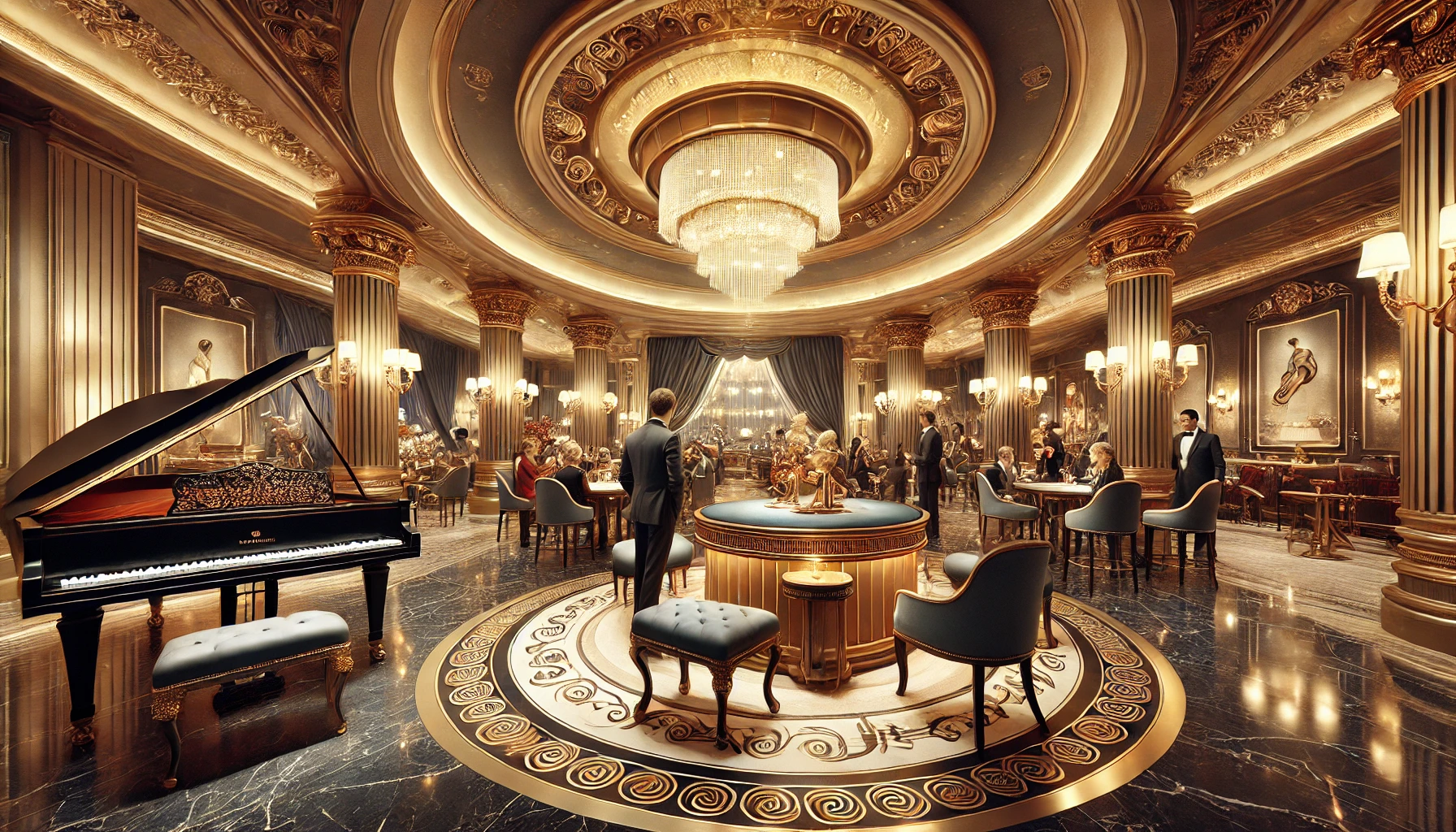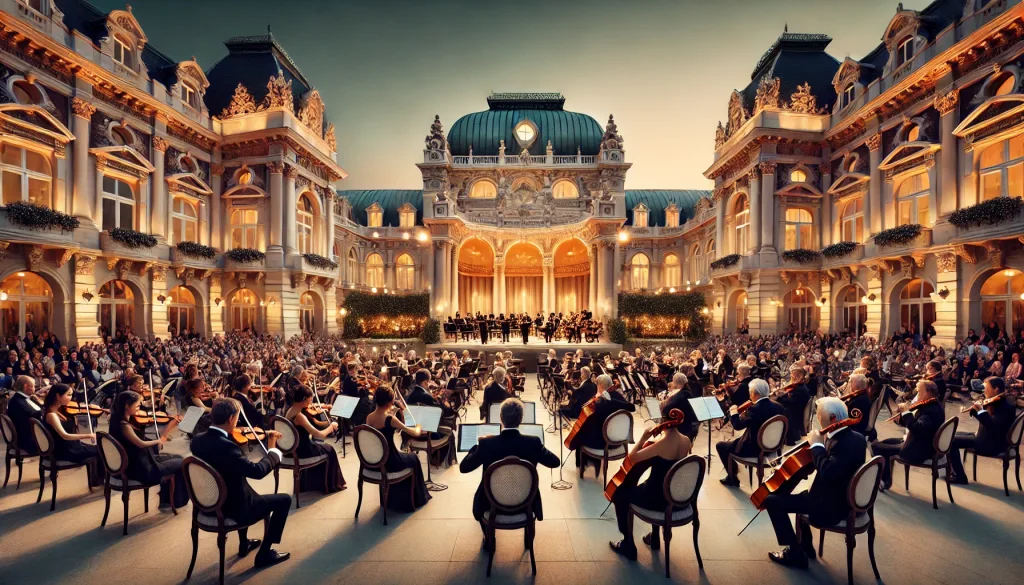The Role of Classical Music in European Casino Culture: An Analytical Overview

Classical music has played an essential role in shaping cultural experiences across various environments, including European casinos. This article explores the influence of classical music within casino spaces, detailing its impact on ambiance, player behaviour, and its broader cultural significance. By blending the sophistication of classical music with the dynamic nature of gambling, casinos create an atmosphere of refinement and exclusivity.
The Intersection of Music and Gambling
Throughout history, music has been a pivotal component of leisure and entertainment, serving as a tool to elevate emotional experiences. European casinos have leveraged this synergy, embedding classical compositions into their environments to appeal to a sophisticated clientele. The strategic integration of classical music not only enhances the aesthetic of casino spaces but also establishes a distinctive identity for these venues.
Classical music, with its intricate harmonies and evocative power, aligns seamlessly with the grandeur often associated with European casinos. The choice of compositions reflects a deliberate effort to communicate a message of prestige and elegance. This practice creates a unique environment where patrons feel both entertained and culturally enriched, making their visit more memorable.
Additionally, classical music acts as a unifying element, connecting individuals through a shared appreciation of art and sophistication. This collective experience fosters a sense of belonging among guests, elevating their perception of the casino as more than just a gambling venue but as a cultural hub.
How Classical Music Shapes Atmosphere
Casinos often use classical music to evoke a sense of elegance and calm, which contrasts with the high-energy settings of other gambling environments. Renowned pieces by composers like Mozart, Beethoven, and Bach are strategically chosen for their ability to create a serene backdrop, subtly influencing players’ emotions and encouraging longer gameplay sessions. The atmosphere shaped by classical music allows patrons to focus more effectively on their games, reducing external distractions and enhancing their overall experience.
Furthermore, the controlled tempo of classical music can subtly influence the pace of activities within the casino. For instance, slower compositions can encourage guests to relax and enjoy their surroundings, while more upbeat selections might invigorate certain areas of the casino. This deliberate curation of music demonstrates the significant role soundscapes play in creating a versatile and engaging environment for visitors.
The Psychological Effects of Classical Music on Players
Scientific studies have demonstrated that music can impact decision-making, concentration, and emotional states. Classical music, in particular, has been shown to promote relaxation and reduce stress, making it an ideal choice for casino environments. Its influence extends beyond creating ambiance; it shapes the behaviours and attitudes of players, aligning with the goals of casinos to provide an enjoyable and immersive experience.
The calming qualities of classical music help mitigate the psychological pressures often associated with gambling. Players tend to exhibit greater patience and rational decision-making when immersed in an environment underscored by soothing music. This effect is especially beneficial in games requiring strategy and focus, such as poker or blackjack.
Moreover, the cognitive stimulation provided by complex musical arrangements can enhance mental alertness and engagement. This ensures players remain attentive and invested in their activities, contributing to a more satisfying gaming experience. The psychological harmony achieved through music serves as a subtle yet effective tool for enhancing customer satisfaction.
Insights from Behavioural Studies
Research has indicated that slower tempos and harmonic compositions can encourage thoughtful decision-making among players. This contrasts with the fast-paced music often associated with heightened arousal and impulsive actions. By opting for classical music, European casinos create an environment conducive to strategic play, appealing to discerning gamblers who value a composed gaming experience.
In addition, the choice of music can influence the overall atmosphere, balancing the excitement of gambling with a touch of sophistication. Behavioural studies suggest that when players feel calm and focused, they are more likely to enjoy their time, resulting in prolonged visits and increased loyalty to the casino. This symbiotic relationship between player satisfaction and business objectives highlights the strategic importance of music selection in the gaming industry.

Classical Music as a Marker of Prestige
The use of classical music in casinos also serves as a symbol of cultural sophistication. European casinos, such as those in Monte Carlo, are renowned for their luxurious settings, where classical music complements the grandeur of the architecture and the exclusivity of the clientele. The integration of music into these spaces reinforces their reputation as bastions of elegance and high culture.
This emphasis on prestige allows casinos to differentiate themselves in a competitive market. By associating their brand with classical music, they appeal to an audience that values refinement and exclusivity. The presence of live performances or carefully curated playlists further enhances the perception of the casino as a sophisticated destination, catering to those seeking a premium experience.
Moreover, classical music serves as a bridge between the past and present, connecting the historical roots of European culture with contemporary entertainment. This blend of tradition and modernity enriches the casino experience, ensuring it remains relevant while maintaining its cultural integrity.
Enhancing the Casino Brand through Music
By associating their brand with classical music, casinos position themselves as more than just gambling venues. They become cultural institutions, offering patrons a holistic experience that combines entertainment, art, and tradition. This approach not only attracts a particular demographic but also elevates the overall perception of the establishment.
In conclusion, classical music remains an integral part of the European casino experience, bridging the gap between entertainment and culture. Its ability to influence player behaviour, create a refined atmosphere, and enhance the prestige of casino brands underscores its significance in this unique context. As the gambling industry evolves, the enduring appeal of classical music continues to be a key element in maintaining the charm and sophistication of European casinos.
